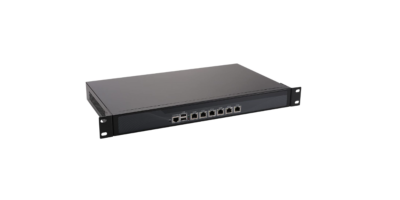The healthcare industry has become increasingly reliant on digital technologies to manage patient data, streamline operations, and ensure high-quality care. In this fast-paced environment, the health and efficiency of a healthcare provider’s IT infrastructure directly impacts their ability to operate securely, compliantly, and effectively. This is where IT assessments for healthcare practices become essential – especially in regions like Orange County, where compliance regulations, competitive standards, and patient expectations continue to rise.
In this blog, we’ll explore the importance of conducting regular IT assessments for healthcare practices in Orange County, covering the benefits, what to expect from a thorough assessment, and why it should be part of your long-term IT strategy.
What Is an IT Assessment?
An IT assessment is a comprehensive evaluation of an organization’s technology environment. For healthcare practices, this includes analyzing hardware, software, network infrastructure, cybersecurity policies, data management practices, and compliance with healthcare regulations like HIPAA.
IT assessments help identify vulnerabilities, inefficiencies, outdated systems, and opportunities for improvement. They provide healthcare administrators and IT leaders with a clear roadmap for optimizing their technology and safeguarding sensitive patient information.
Why IT Assessments Matter for Healthcare Practices in Orange County
Healthcare providers in Orange County face a unique set of challenges:
- Stringent HIPAA and state-level privacy regulations
- Increasing frequency of cybersecurity threats
- Demand for telehealth and digital health tools
- Need for efficient, patient-centric services
- Competitive pressures from other regional providers
To meet these challenges, healthcare organizations must have a solid foundation of secure, compliant, and scalable technology. That’s where IT assessments for healthcare practices come into play. These assessments help identify gaps in your current setup before they become costly issues – and position your practice for growth and resilience.
1. Strengthening Cybersecurity Defenses
Cyberattacks targeting the healthcare industry have surged in recent years. Ransomware, phishing, and data breaches can cripple a practice’s operations, compromise patient trust, and result in massive fines.
An IT assessment evaluates your current security posture by reviewing:
- Firewall and antivirus configurations
- Password and access management policies
- Encryption and backup protocols
- Vulnerability to phishing or social engineering attacks
By identifying weak points and recommending actionable improvements, IT assessments ensure your systems are better protected against emerging threats.
2. Ensuring HIPAA and Regulatory Compliance
Compliance with HIPAA (Health Insurance Portability and Accountability Act) is non-negotiable for any healthcare provider. Non-compliance can result in significant fines, legal action, and reputational damage.
An IT assessment includes a full review of your compliance framework, including:
- Access controls for protected health information (PHI)
- Audit trails and activity logging
- Secure storage and transmission of electronic health records (EHR)
- Business Associate Agreements (BAAs)
IT assessments for healthcare practices help ensure your organization meets all federal and state compliance requirements, minimizing legal risks and boosting patient confidence.
3. Enhancing System Performance and Uptime
System slowdowns, network outages, and outdated software can frustrate staff and patients alike, reducing productivity and compromising care delivery.
A thorough IT assessment evaluates your:
- Server and storage performance
- Network infrastructure and internet speed
- Software licenses and update schedules
- Interoperability of medical systems (EHR, billing, lab systems)
These insights help you streamline operations, reduce downtime, and create a smoother experience for both staff and patients.
4. Supporting Strategic IT Planning and Budgeting
Technology in healthcare should support your long-term business goals. However, without a clear understanding of your current IT environment, it’s difficult to make informed investment decisions.
IT assessments provide a baseline for:
- Planning hardware or software upgrades
- Budgeting for IT support and managed services
- Prioritizing projects such as telehealth expansion or cloud migration
With a detailed assessment in hand, administrators and IT teams can develop realistic roadmaps for scalable, sustainable technology improvements.
5. Evaluating Data Backup and Disaster Recovery Readiness
Natural disasters, system failures, or cyberattacks can lead to data loss or prolonged service outages. An IT assessment helps determine whether your current backup and disaster recovery plans are sufficient.
Key elements include:
- Frequency and automation of data backups
- Off-site and cloud backup solutions
- Recovery Time Objectives (RTO) and Recovery Point Objectives (RPO)
- Staff preparedness for IT-related emergencies
A strong disaster recovery plan is essential for maintaining continuity of care and meeting compliance mandates in the event of unexpected disruptions.
6. Improving Patient Experience Through Technology
Modern patients expect healthcare providers to offer convenience, transparency, and digital access to services. Outdated or inefficient systems can lead to delays, errors, or dissatisfaction.
IT assessments examine how well your technology supports patient-facing services like:
- Online appointment scheduling
- Patient portals and secure messaging
- Electronic billing and payment systems
- Telehealth platforms
Upgrading these systems based on assessment findings can significantly enhance patient satisfaction and engagement.
It is estimated that telehealth could save the United States healthcare system more than $4 billion annually. By leveraging technology, healthcare practices can reduce unnecessary referrals, streamline evaluations, and help prevent avoidable diseases.
7. Supporting Growth and Expansion
As healthcare practices grow, their technology needs become more complex. Whether you’re opening a new location, hiring more staff, or offering new services, your IT systems must be ready to scale.
An IT assessment ensures your infrastructure can handle expansion without sacrificing performance or security. It also identifies any licensing, hardware, or bandwidth limitations that may hinder growth.
8. Gaining Peace of Mind and Reducing IT Risks
Perhaps the most overlooked benefit of IT assessments is the peace of mind they offer. By identifying potential issues before they turn into major problems, healthcare practices can proactively manage risk, avoid unnecessary expenses, and maintain uninterrupted service delivery.
Knowing your systems are secure, compliant, and aligned with your goals gives you and your staff the confidence to focus on what matters most – patient care.
Conclusion
In an industry where compliance, security, and efficiency are vital, IT assessments for healthcare practices are not a luxury – they’re a necessity. Regular assessments help healthcare providers in Orange County protect sensitive data, improve system performance, meet regulatory standards, and plan for the future.
As the healthcare landscape continues to evolve, your practice needs a solid technological foundation. An IT assessment is the first step toward building that foundation – and maintaining it for years to come.
Need a Professional IT Assessment for Your Healthcare Practice?
At MedicalITG, we specialize in comprehensive IT assessments for healthcare practices in Orange County. Our expert team will evaluate your systems, identify risks, and provide a clear action plan to ensure compliance, security, and performance. Call us today at (877) 220-8774 or email us at info@medicalitg.com to learn how we can help you strengthen your technology environment and focus on patient care.










